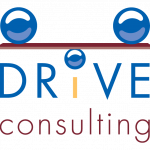 June 4, 2010 – Last month we discussed the nature of stress and mentioned the all too common passive reaction. Before beginning to examine the best way of harnessing stress to work for us, we must understand other common reactions to stress. So the question is posed: What other common methods of responding to stress can we think of?
June 4, 2010 – Last month we discussed the nature of stress and mentioned the all too common passive reaction. Before beginning to examine the best way of harnessing stress to work for us, we must understand other common reactions to stress. So the question is posed: What other common methods of responding to stress can we think of?
Variation on Passive Approach
A variation on the theme of passive reactions is to accept the situation, and distance oneself from the stress. Someone with this response may say “so what,” or perhaps ask if it will it matter next year, next week, or even tomorrow. Doing so minimizes the effects of the stress on a superficial level; however when one thinks about the situation one realizes the stress is still extant and exerting its negative effects. Generally, the passive reaction to stress is not recommended, and eventually will take its toll on one’s physical and mental health.
Active Approach
A more promising approach is to actually take steps to change the situation — actively addressing the stressful event and taking action to bring it to resolution (or at least move toward resolution). Meeting the stress head-on and overcoming it as you plow through towards your goal. This is a very powerful response, and one that many effective leaders employ. Although this method will get you past the current stress, it will not ease the overwhelming feeling of living with chronic stress. You merely move from one stressful event to the next.The inverse of this approach would be to avoid the situation. People responding this way decide not to get involved in a stressful situation that they don’t see as concerning them, or upon which they can’t make an impact. A more useful usage of this approach would be to foresee a stressful situation before it erupts and actively take steps to avoid it. Granted this approach is not always possible and is difficult to implement once the stress has arisen.
Interactive Approach
The final approach to handling stress is to alter the experience of the situation by interacting with it. Step back from the situation, gain a broader perspective of the event, consider different perspectives, and the experience itself changes.
“The greatest discovery of my generation is that human beings can alter their lives by altering their attitudes of mind.” — William James
How then do we alter our “attitudes of mind?” First, of course, is to avoid getting pulled into the downward spiral of negativity evoked by the stress. Begin by clearing your mind, whether by taking a walk or the proverbial breathing and counting to ten, and relaxing. Delve into which of your goals is at the epicenter of the stress. Devise a broad list of options to further that goal. Harness the stress to act as a motivator for you to achieve greater success by focusing on the goal and avoid getting caught up in the self-defeating aspect of stress. Shifting and broadening perspectives is the most challenging of the responses, because we often tend to be stuck in our own interpretations and assumptions about what’s happening. Breaking through our patterns of interpretations and assumptions can, as we discussed in previous newsletters, be a powerful methodology to creating success in our lives.
This Month’s Challenge
When next confronted with stress, consider how you can shift the perceived stress into an opportunity to excel. Harness the stress, understand what causes it, devise a broad list of all the options available to dealing effectively with the situation, choose which of the competing forces best serves your purposes, and then act in accordance with that force. Remember, feeling stressed occasionally is unavoidable; feeling burdened by chronic, uncontrollable stress is optional. It’s your life, and harnessing stress allows you to create your life as you wish.
Consider the possibilities.
Adam J. Krim www.driveconsulting.net







